|
Genres, Themes, Actors, and Directors:
- Father and Child
- Italian Films
- Living Nightmare
- Unemployment
- Vittorio De Sica Films
Response to Peary’s Review:
Peary notes that the “simple storyline” of “Vittorio De Sica’s classic of post-WWII Italian neo-realism” — “loved by moviegoers, revered by critics” — has “some special moments”, but he argues that “perhaps De Sica is too cruel, not just to his hero but to his audience as well”. However, his specific criticisms about De Sica’s “cruelty” don’t quite hold true: he questions why Maggiorani “always run[s] at half-speed”, yet De Sica simply depicts him attempting in vain to catch up with a quickly-moving, darting bicycle, or maneuvering through thick crowds; and while Peary writes that “De Sica has the gall to include a scene in which the unhappy man takes out pencil and paper to figure out how much money he would have made per month if the bike hadn’t been stolen”, I view this scene as a critical element of Maggiorani’s explanation to his son about why they must remain diligent in their seemingly elusive search for the bike. Later in his review, Peary writes that what he finds “more impressive today than the story of a man retrieving his bike are the shots of postwar Rome” — most noticeably “the crowds” who appear in numerous settings across the city; he notes that “from watching these crowds… we learn the character of the city” and “come to realize that a lone man with a small boy doesn’t stand a chance”.
Like so many other budding young film fanatics, I first saw The Bicycle Thief (a.k.a. The Bicycle Thieves, which many argue is the more accurate title) in a film appreciation class many years ago, and its devastation was so thorough that I put off re-watching it for over two decades. Yet now that I’ve finally viewed it for a second time, it’s clear to me that De Sica deserves accolades for presenting his country’s post-war devastation in such brutal, unflinching terms: we may not enjoy witnessing the suffering of Italy’s citizens, but a neo-realist perspective was ultimately the best choice for depicting the challenges of their existence. As many critics have pointed out, neo-realism isn’t a form of documentary film-making — rather, it’s a highly strategic cinematic perspective that employs the documentary-like use of realistic settings, non-actors, and meaningful, true-to-life scenarios, to powerful effect. Ultimately, The Bicycle Thief isn’t an easy film to sit through, but it remains an essential part of our cinematic history — one which all film fanatics should experience at least once; its images and scenes will likely linger in your memory for years.
Redeeming Qualities and Moments:
- Lamberto Maggiorani as Ricci
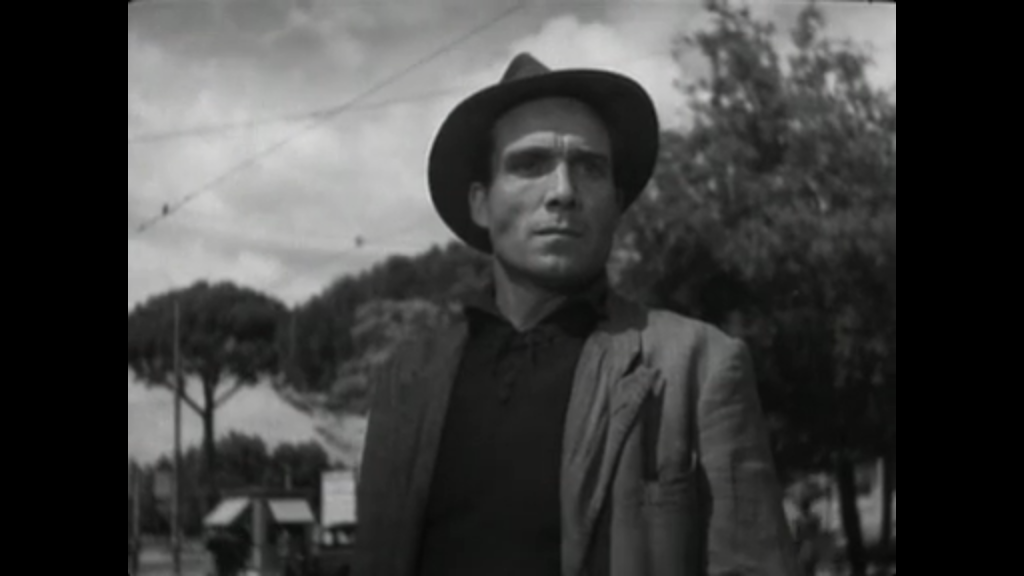
- Enzo Staiola as Bruno
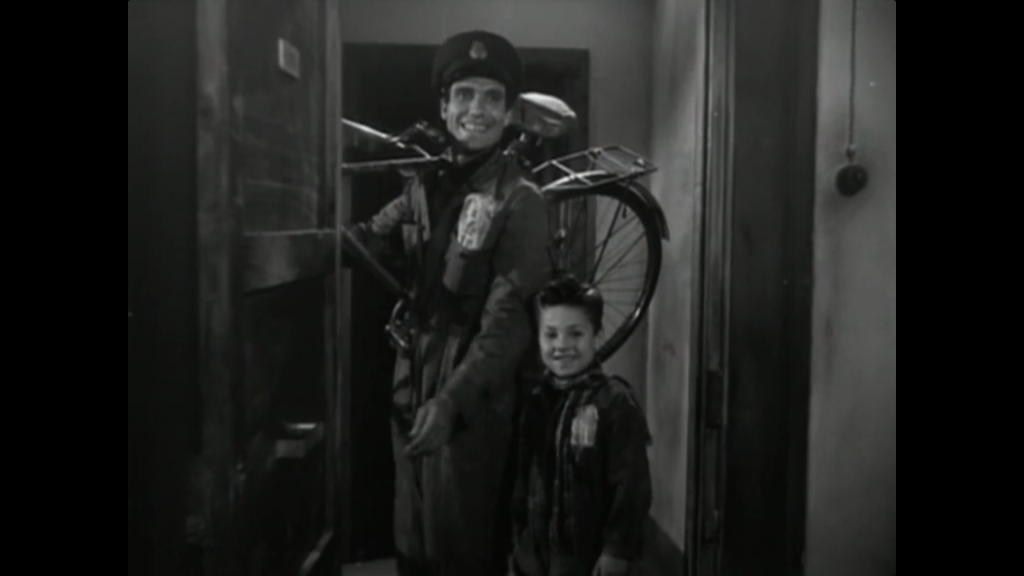
- A remarkably authentic portrait of post-WWII Rome
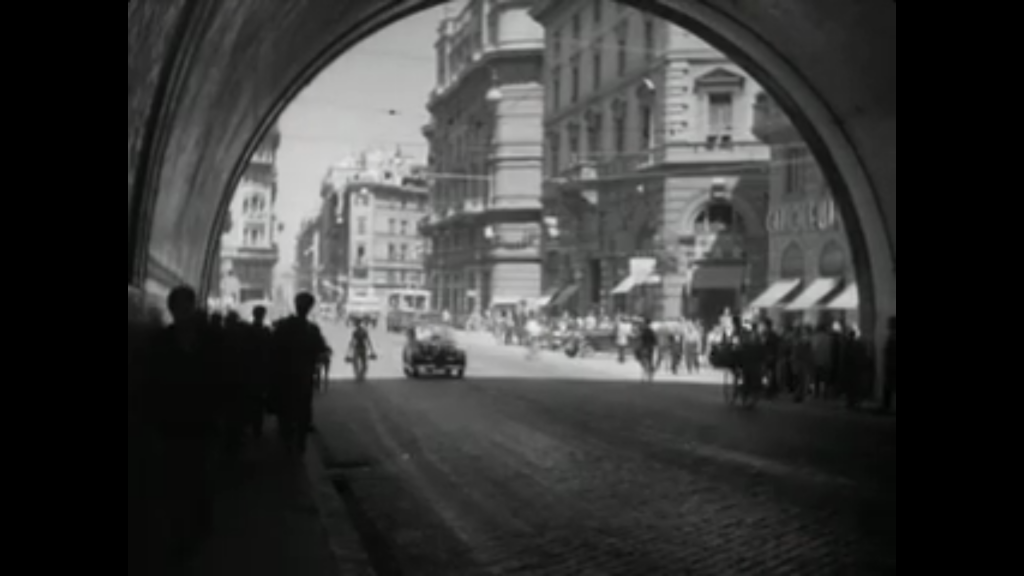
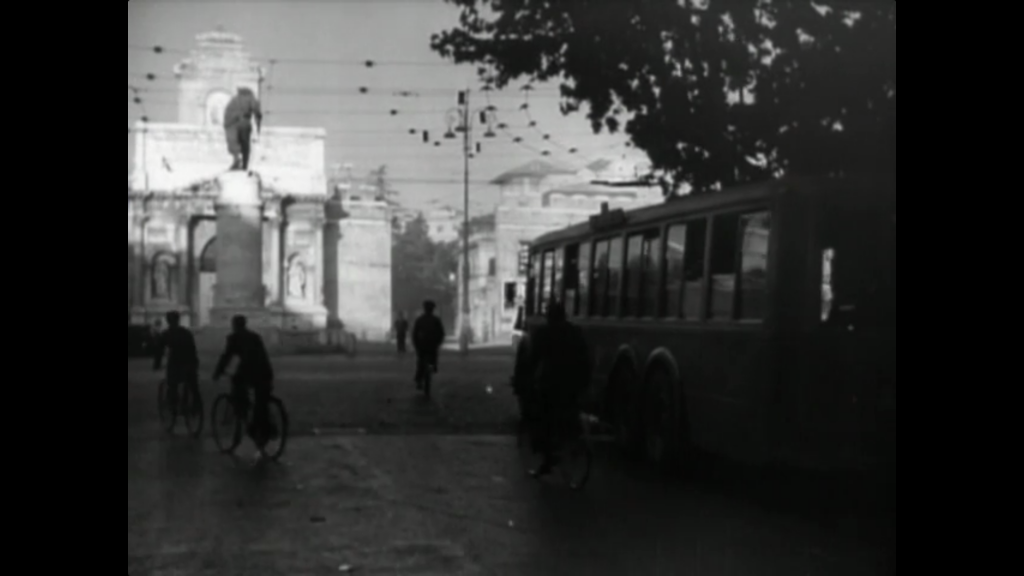
Must See?
Yes, as a classic of early Italian cinema.
Categories
- Foreign Gem
- Genuine Classic
(Listed in 1001 Movies You Must See Before You Die)
Links:
|
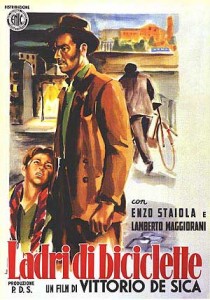




One thought on “Bicycle Thief, The / Bicycle Thieves (1948)”
A very tentative once-must, for its place in cinema history.
I do feel that De Sica made some fine films; I just don’t think this is one of them. I can understand its importance as part of a wave of minimalist storytelling in its day, but it escapes me why this is considered such an incisive document of the hardships of postwar Rome. Ok, so most people didn’t have money – we see that. But we don’t really see the day-to-day lives of the average people of the town or, in detail, what kind of “devastation” they are facing – other than that many of them seem to need jobs.
What takes up the bulk of screen time (the search for the bicycle) pales in comparison to the film’s peripheral element: the seeming futility of being a good person when you are surrounded by people out to save their own skins first. Indeed, that’s what I come away from this film with: the images of blandly dutiful & hysterical Catholics; the phony psychic that people flock to, even though her ‘advice’ is patently worthless; the townsfolk who accuse first and ask questions later. It’s no wonder the protagonist comes to realize that doing the right thing can seem to be the most illogical thing in the world.
My main gripe with the film: it is only 90 minutes long; we spend a good hour of that more or less watching the man look for his stolen bicycle. Keep in mind at this point that there were about six or seven writers on board for this: WHY?! The film’s final third does have slightly more complication to it – but that’s ‘complication’ only compared to what preceded it, which isn’t much. The whole thing slowly floats by at a very leisurely pace, which only reinforces the lack of plot. I’m assuming the audience is supposed to feel ‘the mood’ of all of this. But, honestly, all I sense here is something very thin. Actually, the film comes off to me mostly like a missed opportunity.